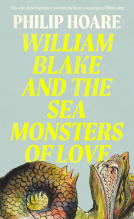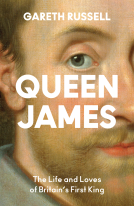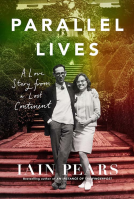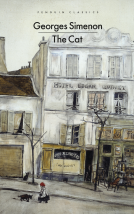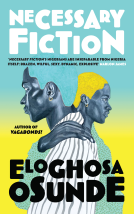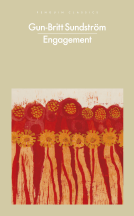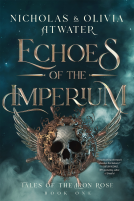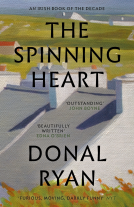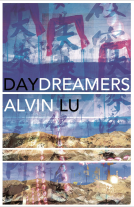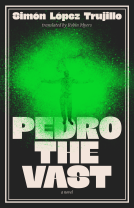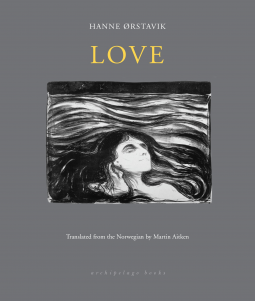
Love
by Hanne Ørstavik
This title was previously available on NetGalley and is now archived.
Send NetGalley books directly to your Kindle or Kindle app
1
To read on a Kindle or Kindle app, please add kindle@netgalley.com as an approved email address to receive files in your Amazon account. Click here for step-by-step instructions.
2
Also find your Kindle email address within your Amazon account, and enter it here.
Pub Date 13 Feb 2018 | Archive Date 19 Jan 2018
Talking about this book? Use #Love #NetGalley. More hashtag tips!
Description
FINALIST FOR THE NATIONAL BOOK AWARD FOR TRANSLATED LITERATURE
A mother and son move to a village in northern Norway, each ensconced in their own world. Their distance has fatal consequences.
Love is the story of Vibeke and Jon, a mother and son who have just moved to a small place in the north of Norway. It's the day before Jon's birthday, and a travelling carnival has come to the village. Jon goes out to sell lottery tickets for his sports club, and Vibeke is going to the library. From here on we follow the two individuals on their separate journeys through a cold winter's night - while a sense of uneasiness grows. Love illustrates how language builds its own reality, and thus how mother and son can live in completely separate worlds. This distance is found not only between human beings, but also within each individual. This novel shows how such distance may have fatal consequences.
Advance Praise
"Love is Ørstavik's strongest book." --Karl Ove Knausgaard
"Prizewinning Norwegian Ørstavik follows the parallel courses of a single mother and her 8-year-old son during a night that moves unrelentingly toward tragedy... A nightmarish sense of impending doom hangs over these carefully detailed, tightly controlled pages... icy cold to the core." —Kirkus Reviews
"In this swift, elegantly constructed novel, Hanne Ørstavik masterfully conveys a sense of entwined dread and longing that doesn’t let up for a second. From the opening page to the powerfully moving finale, this tale of a mother and son is riveting. The characters’ inner lives are illumined by a beautiful eeriness, and the translation’s precision and clarity do justice to the novel’s intensities. Read it: it’ll bat around your brain for a long time afterward." — Martha Cooley, author of The Archivist and Guesswork
"Point of view works like a spot of living light in this slender book, with deft perspective shifts occurring between Vibeke, a hardworking, distracted mother, and Jon, her curious, lonely young son, on nearly every page. Mother and son are each on a separate journey, but the reader watches their whole shared life, as memories are folded expertly between breaths in Orstavik's urgent, visually vivid present tense--what a lovely shape. Nothing is wasted. And I'm astonished by the precision and poetry of Martin Aitken's translation from the Norwegian." — Gina Balibrera, Literati Bookstore
"You can give it as a gift to anyone, and they will be absorbed." --Aftenposten
"Ørstavik describes these tense hours with a fine feeling for language. The tone is quiet, the words believable, the story captivating and engaging without turning into a tearjerker about broken family ties." --Morgenbladet
"A wonderful and poetic book about loneliness and the search for love." --La Gazette Nord-Pas de Calais
"Simple and subtle, meditative and gripping." --L'Humanité
"Love explores the insurmountable distance between people, the elementary impenetrability of them, and tells us about the difficulty of reading the signals of others. In short, dry sentences, Ørstavik relates all the postponed, the possibilities that hang over our lives." --Avant-critiques
“A wonder of minimalist prose. . . Curious, and simultaneously a joy, emerging out of such a literary, linguistic power.” — Kristina Maidt-Zinke, Süddeutsche Zeitung
“Her style is shy, almost minimalistic; Drama plays out underneath the surface. . . It is namely masterful. . . Perhaps Love, which appeared in 1997, is even a kind of pioneer that contemporary Norwegian literature has followed since then. Everything is inside: loneliness, yearning, self-doubt – and the desperate, but unending will to change something.” — Peter Urban-Halle, Neue Zürcher Zeitung
“This book, this small story by Hanne Ørstavik, binds one, and when one finishes reading it, doesn’t let one go so quickly.” —Cornelia Wolter, Frankfurter Neue Presse + Frankfurter Rundschau
“…well-constructed, linguistically brilliant, and such a cruel book that it leaves a cinematic shuddering in the mind.” — Martina Sander, Besser Nord als Nie!
"Hanne Ørstavik's literary significance grows from novel to novel... An existential novel dealing with both the heaviness and lightness of language, written with impressive strength and courage... Rarely does one come across such a perceptive analytical mind as Hanne Ørstavik. She gives nothing away for free, there is no overdriven emotion, no sentimentality nor pandering to her public. The story's concept overrides everything, all the layers of the onion are peeled away until we come to the heart of the question. Hanne Ørstavik never makes it easy for herself or the reader in her rigorous treatment of these existential problems. But thanks to a language rich in its precision, with no loss of simplicity, it becomes an experience to follow her to her conclusion. One knows that one has read something substantial which one would not wish to be without." --Dagbladet
Available Editions
| EDITION | Other Format |
| ISBN | 9780914671947 |
| PRICE | US$18.00 (USD) |
| PAGES | 180 |
Average rating from 19 members
Featured Reviews
 Paula B, Reviewer
Paula B, Reviewer
Winters are bitingly cold in northern Norway, with an average temperature of around -17 °C. Yet it is to a bleak little village in this region that Vibeke moves with her eight-year-old son, Jon, in order to make a fresh start. The story begins as the circus arrives, on the eve of his birthday.
Both mother and son are intense, cerebral individuals, who lose themselves in daydreams, and struggle to communicate their thoughts and feelings to others - she chain-smokes, he continually blinks. Even so, they are overly trusting of strangers and have oddly naïve personalities. The greatest void, however, is between the two of them, and they seem to view each other from opposite sides of a wide crevasse. There is love (adoration on his part), but it is ill-defined, unfocused.
“She gets through three books a week, often four or five. She wishes she could read all the time, sitting in bed with the duvet pulled up, with coffee, lots of cigarettes, and a warm nightdress on.”
Voted the sixth best Norwegian book of the last 25 years, Love, by Hanne Ørstavik (originally published as Kjærlighet in 1997), has been translated into English by Martin Aitken, and is due for release in February 2018. It is an existential novel, with narratives drifting back and forth between Vibeke and Jon, which all but merge when either one or both of them become anxious. As the story develops, Ørstavik skilfully effects a feeling of dread - an unpleasant, tense, vaguely sinister sensation of impending catastrophe pervades the icy air.
Has anything significant been lost in translation? I think there probably has, but as an inveterate unilingual English-speaker I simply cannot judge. Nevertheless, I am able to say with certainty that Love is an intelligent, compassionate, if melancholy tale, which demonstrates what can happen if we become too internalised and fail to be mindful of those we love most.
 Elyse W, Reviewer
Elyse W, Reviewer
After reading “Love” in one sitting in the middle of the night - (180 pages: Kindle for me), already had slept from about 7pm to 1am- I stayed awake under the covers of my bed thinking about this novel for a good hour before falling back to sleep for another few hours.
This is my first read by author Scandinavian author Hanne Orstavik. Hopefully not my last! What I especially liked was all my own thinking intertwined throughout and then after I finished reading “Love”. I was examining this story from many points of views while being completely captivated by the content presented.
The story itself takes place during the middle of the night - just as my reading it was.
It’s a quiet meditative type of read. A few times my own imagination raced ahead and got the better of me. There was one scene where I was scared - really scared — and it was my imagination... but then I had a hard time shaking my fears of ‘what if’.
Jon is 8 years old. He will be 9 tomorrow. He and his mother, Vibeke, live in a small town in northern Norway. They are new to the town, having just recently moved in.
A traveling carnival has come to town. Vibeke was on her way to the library - but they were closed - and ends at the carnival.
Jon also leaves the house to sell lottery tickets for his sports club.
We follow both of them during the night as they take very different journeys.
We meet the people each of come into contact with.
Jon is sure his mother is at home baking a cake for his birthday....with high hopes in getting a train set the next day.
As a single mother, Vibeke hasn’t much money....yet she has a lot of attention on looking good - would like to buy a new outfit - “she deserves it, with the move and all”. During a dinner scene — before their separate journeys begin — we see the inside thoughts of Vibeke: she doesn’t think her son’s stories have a point and “Can’t you just go, she thinks to herself. Find something to do, play or something”.
What stood out for me ( without giving this small story away) - is how innocent - vulnerable- pure - a child’s love can be for their parent ....under any circumstances. Yet underneath the surface we feel so many emotions....the loneliness.... sadness...longing: desire to be bathed in love.
I’m very glad I chose to read this book ....I thought it was gorgeously written...with concise compact sentences. I also love the book cover - Lovely
Thank You Netgalley, Archipelago Publishing, and Hanne Orstavik
 Jennifer W, Reviewer
Jennifer W, Reviewer
Wow! Neither mother nor son is particularly likeable, but both are pitiable. The conclusion was so much bleaker than I could ever have expected. I found myself wondering if Vibeka or Jon had ever seen a psychiatrist. And what prompted them to leave their former home? Ultimately, though, neither question matters. Such a sad, beautiful, poignant little book.
 Ali T, Reviewer
Ali T, Reviewer
An evocative and moving gem, Love is a novella, but it packs a punch that leaves a bruise that takes a long time to fade. With its spare, pared-down prose and constant sense of brooding unease, this is literary Norwegian noir with all the snow and isolation, but without the crime. Written in 1997 by prize-winning author Hanne Orstavik, it’s now accessible to English readers for the first times in this fine translation by Martin Aitken from Archipelago Books (from mid Feb, 2018)
Vibeke and her eight year old son, Jon have recently moved to a small village in Norway to make a new start. She hopes he’ll make friends and that she’ll find a boyfriend. Everywhere is covered in snow, it’s Jon’s birthday tomorrow but his mother would rather spend her free time reading:
a good book, a big thick one of the kind that leave an impression stronger and realer than life itself.
They spend the evening separately: Jon goes to sell raffle tickets to his neighbour while Vibeke goes to the library, and their stories seamlessly alternate and echo each other. Jon loves his mother and is excited about his birthday. Vibeke fantasises and builds up the perfect love affair from one meeting with a stranger:
I can wait. I’ll sheathe us both in speechless intimacy, until we’re ready for the abruptness of words.
Orstavik tantalises the reader by setting up the kinds of scenarios you’d expect in a horror movie, then skilfully sidesteps at the last minute: Will Jon go down to the cellar with the old man? Will Vibeke go back to a stranger’s caravan? Does Jon get into a stranger’s car? Does Vibeke go with the man to an isolated bar? As each possible decision is taken and played out, the atmosphere becomes darker. But the ending still comes as a complete shock. The reader has been anticipating one or both will come to a sticky end, but ultimately it is a misunderstanding, not an act of violence, that leads to tragedy.
Love explores modern family life, loneliness and what we expect from love, in all its forms. A beautiful, moving story that never let’s the reader off the hook.
 Angela C, Reviewer
Angela C, Reviewer
A beautiful book though the direction is difficult to describe. The two main characters are Jon, a young boy looking forward to his birthday and his mother Vibeke who is an avid reader and just as avid dreamer. They have moved recently and are new in the village. While Jon dreams of a toy train for his birthday, Vibeke smiles at imagined and past love encounters. They both visit a fun fair where Jon is occupied with a girl a little older than him and Vibeke meets a man. There, their journeys into the night diverge. I was particularly interested in Vibeke’s thoughts; she had an interesting take on men. It is a little bit of an abrupt ending but I think the length is right.
 Mandy J, Reviewer
Mandy J, Reviewer
I loved this sad, haunting short novel about a boy and his mother, who live together in a small Norway town, but whose lives rarely connect in spite of the boy’s longing for his mother’s attention. It’s a cold, winter’s night, the eve of Jon’s ninth birthday. As he wanders about outside he dreams of his mother at home baking him a cake. His mother, meanwhile, has pretty much forgotten Jon as she sets out to enjoy herself and links up with a stranger who’s come to town with a travelling carnival. The narrative switches back and forth between mother and son in a spare, low-key prose that feels all the more stark as the foreboding tension mounts. A short, suspenseful, tragic tale, which I found compelling and very moving.
 Juliana B, Reviewer
Juliana B, Reviewer
Love (2018, tr. Martin Aitken. Original: Kjærlighet, 1997), or the absence of it, unfolds on a single day in the lives of Vibeke and her eight-year old son, Jon. It’s winter, we are on the eve of Jon’s birthday, and he is wating for his mother to come home from work.
They have recently moved to a small town in the north of Norway, and Vibeke works as an arts and culture manager in the local community. She is a single mother and a voracious reader; she is lonely and aloof – and, more importantly, she does not fit in the stereotype of how a mother should be or what a she should feel.
Jon is lonely, too. He is constantly thinking about his mother, but they never really talk to each other. Even when they are together, their thoughts seem to be trapped in two uncommunicable islands: he is thinking of school, she is daydreaming about clothes, nail polish, books, love.
Jon imagines that Vibeke must be busy preparing everything for his birthday, but she seems to have completely forgotten about it. Vibeke comes home, takes a bath, and, believing Jon must be home somewhere, she goes out again to return some books to the library. On the other hand, thinking that his mother must be busy, Jon leaves the house to try to sell some raffle tickets to the neighbours.
We follow their separate but oddly interconnected journeys into the night, and the novel is told alternately from Vibeke’s and Jon’s points of view, switching back and forth between them – and, occasionally, it happens so seamlessly, that we feel as if we were following a long shot, and the camera were passing through loosely interconnected movie sets.
Wandering in their parallel journeys, Vibeke and Jon have various encounters with strangers in the night, and we have a vague sense that danger is lurking somewhere. Jon meets an old man, goes with him down to the guy’s cellar, and there is a chain hanging from the wall; in another scene, Jon starts talking to a girl, goes to her house, she then goes to bed, and her parents start to talk with him in a strange, vaguely erotic way; later, he gets into a car with a woman wearing a wig, and wonders whether she might be a man.
Meanwhile, Vibeke meets a stranger who works at a travelling funfair, and goes with him to his caravan. We have an uncanny feeling that there might be something menacing in what mother and son are doing, but we cannot know exactly what or why. Vibeke and Jon seem oblivious to any kind of danger. Maybe the danger is only in our minds…
As in her novella The Blue Room (2014, tr. Deborah Dawkin. Original: Like sant som jeg er virkelig, 1999), Hanne Ørstavik is brilliant at playing with our expectations and creating a strong sense of dread (while, at the same time, refusing to see the characters as monsters). And the fact the they can always turn out to be monsters but never really do only deepens our sense of dread.
The highlight of the novel for me was the way Ørstavik trapped her characters inside their loneliness; and then made their islands of isolation touch in unsuspected points that remained invisible to them. Vibeke and Jon are inside different cars, but they pass by one another without noticing. As the novel progresses, their different perspectives start to flow into and from one another in the space of a few paragraphs. One scene flows into another as if they were the same; the islands briefly touch, then flow away.
Mother and son are miles apart, and only the way Ørstavik structured the narrative makes them seem closer and connected – which only throws us more deeply into their shared bubbles of loneliness. The book ends in waiting, on a similar point where it had started, but on a bleaker note. And there is no better way of writing a novel about love than to centre it on the absence of love. “He stretches out on his tummy, settling into sleep. Inside his head everything is dark and big and still. He’ll wait for her here.“
While mother and son share close moments of intimacy (Vibeke walks naked around the house, for instance), there is this disquieting disconnect between them – as if their intimacy were only a glass jar: it’s transparent, pure and exact, we can see everything inside, but the jar is forever empty.
 Andrija F, Educator
Andrija F, Educator
"Love" by Hanne Ørstavik is a novel that explores the complexities of human relationships through the lens of a single evening. Set in a small Norwegian town, the story centers on a mother named Vibeke and her young son, Jon, who are both navigating their own emotional challenges.
The novel unfolds over the course of one night, as Vibeke goes out for a date and Jon stays home alone. Ørstavik's writing delves into the inner lives of the characters, revealing their desires, fears, and insecurities. The narrative shifts between Vibeke's and Jon's perspectives, providing insight into their thoughts and feelings as they confront their own vulnerabilities.
"Love" is known for its intense and introspective portrayal of the characters' emotional states. Ørstavik's prose captures the nuances of human connection and the ways in which people can feel both close and distant from those they care about. The novel is a poignant examination of love, loneliness, and the search for meaning in relationships.
Readers who liked this book also liked:
Philip Hoare
Arts & Photography, Biographies & Memoirs, Nonfiction (Adult)
Pirkko Saisio
Biographies & Memoirs, General Fiction (Adult), Literary Fiction

